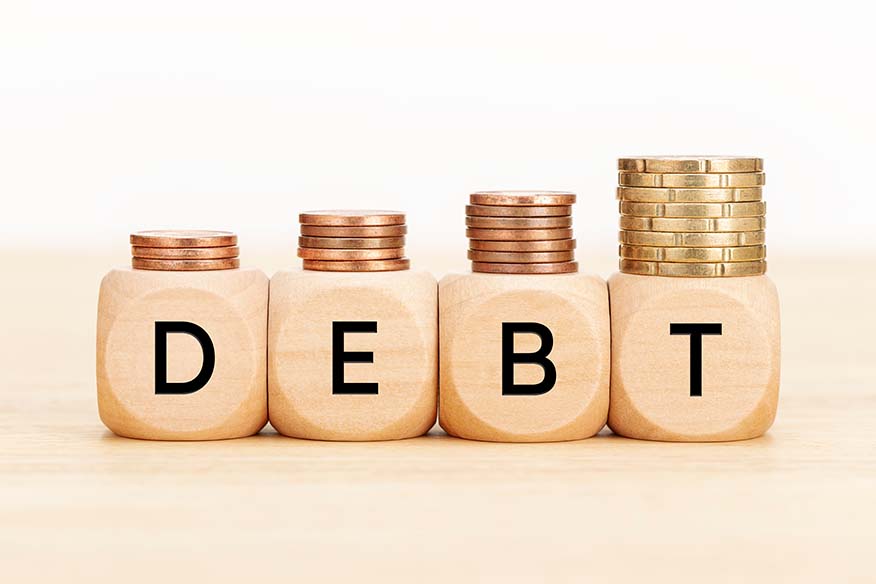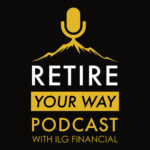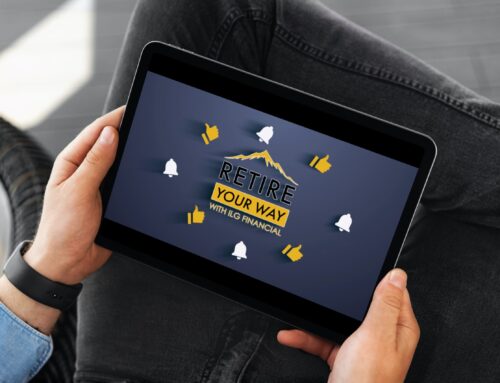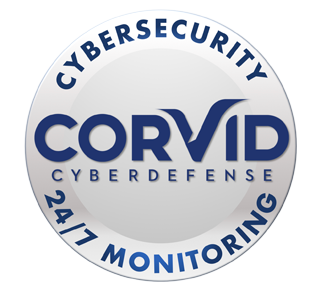 Carrying consumer debt into retirement can quickly reduce the monthly cash flow available to spend on healthcare, travel, and leisure activities or could necessitate drawing down retirement accounts faster than planned. Either situation puts you at risk for running out of money or facing significant lifestyle changes to make ends meet.
Carrying consumer debt into retirement can quickly reduce the monthly cash flow available to spend on healthcare, travel, and leisure activities or could necessitate drawing down retirement accounts faster than planned. Either situation puts you at risk for running out of money or facing significant lifestyle changes to make ends meet.
Financial strain is a reality for many nearing the retirement phase.
- Baby boomers carry an average credit card balance of $6,747 and $25,812 in total nonmortgage debt.
- Generation Xers carry an average credit card debt of $7,718 and $32,878 in nonmortgage debt.
No matter if you’re the last of the Gen Xers at age 41 or the first of the Boomers at 74 – debt is a reality, and you need to manage it if you want to see your retirement plan come to light. The closer to retirement, the more accurately you need to calibrate the numbers between paying off debt and saving for retirement.
First, pay down high-interest-rate debt (such as student loans, credit cards, auto, and home), and then move to a mix of debt repayment and investing when your debt interest rates are less than potential stock market returns.
Credit Card Debt = Pay first! Consider that if your interest rate on a credit card is hovering at 20%, then you’re paying one dollar for every five borrowed.
Mortgage Loan vs. Savings = Save first! If you’re choosing between paying down a mortgage faster or contributing money to an IRA — or leaving money in an IRA rather than withdrawing it to pay for your home — you’ll often end up ahead by prioritizing retirement savings. If your IRA grows 6% that year and your mortgage interest rate is 3%, for every dollar you put into savings instead of paying down debt, you’ll end up with more money as a result
Debt During Retirement = Pay with Caution! One way to pay debts off is to use proceeds from retirement plan distributions, Social Security income, or pension income. Tapping extra retirement funds can also be a solution. Use caution with this approach, as taking a large retirement account distribution to repay your debt will mean having to declare higher income that year and pay more taxes.
Unfortunately, some of us head into retirement with debt, and it’s worth trying to get rid of as much as possible as early as possible. If you’d like to review your financials and work out a plan for retiring debt-free or close to, give us a call today at (540) 720-5656.
Adapted from Experian1
















 Megan Jones joined the ILG Financial team in 2020 as marketing director. Megan and her husband live in Fredericksburg, VA with their German Short Haired Pointer, Gus. Megan is a graduate of Longwood University and holds a degree in communications. Megan is the oldest of Dave Lopez’s three children and not only enjoys working alongside her father, but also with her cousin, Chase, who joined the ILG Financial team in 2020 as an advisor. Megan is also a fully licensed Life, Health, and Annuity agent. When not at work, Megan enjoys sitting on the back porch with family and friends enjoying food and music.
Megan Jones joined the ILG Financial team in 2020 as marketing director. Megan and her husband live in Fredericksburg, VA with their German Short Haired Pointer, Gus. Megan is a graduate of Longwood University and holds a degree in communications. Megan is the oldest of Dave Lopez’s three children and not only enjoys working alongside her father, but also with her cousin, Chase, who joined the ILG Financial team in 2020 as an advisor. Megan is also a fully licensed Life, Health, and Annuity agent. When not at work, Megan enjoys sitting on the back porch with family and friends enjoying food and music. Chase Lopez joined the ILG Financial team in 2020 as an advisor. Chase is a 2016 James Madison University graduate with a degree in management. Chase has been trained under the tutelage of Dave Lopez, who is not only the founder and managing member of ILG Financial, but also is Chase’s uncle and godfather. He also enjoys working alongside his cousin, Megan, who is Dave’s daughter.
Chase Lopez joined the ILG Financial team in 2020 as an advisor. Chase is a 2016 James Madison University graduate with a degree in management. Chase has been trained under the tutelage of Dave Lopez, who is not only the founder and managing member of ILG Financial, but also is Chase’s uncle and godfather. He also enjoys working alongside his cousin, Megan, who is Dave’s daughter. Amy Anderson joined the ILG Financial team in 2023 as the client relations coordinator. Her responsibilities include scheduling of appointments, annual check-up notifications, and annuity and required minimum distribution assistance. She is a graduate of Harding University with a degree in Computer Information Systems. Amy and her husband have two children and she enjoys reading, crocheting, music and spending time with her family.
Amy Anderson joined the ILG Financial team in 2023 as the client relations coordinator. Her responsibilities include scheduling of appointments, annual check-up notifications, and annuity and required minimum distribution assistance. She is a graduate of Harding University with a degree in Computer Information Systems. Amy and her husband have two children and she enjoys reading, crocheting, music and spending time with her family. Jessica Carson joined the ILG Financial team in 2018 as an agent. Jessica and her husband have four children, two dogs, 3 barn cats, 5 chickens, and three parakeets. She indeed loves her children and pets! When not at work, Jessica enjoys playing the piano and cello as well as traveling and spending time outside with her family, hiking, fishing, and boating.
Jessica Carson joined the ILG Financial team in 2018 as an agent. Jessica and her husband have four children, two dogs, 3 barn cats, 5 chickens, and three parakeets. She indeed loves her children and pets! When not at work, Jessica enjoys playing the piano and cello as well as traveling and spending time outside with her family, hiking, fishing, and boating. Terri Center joined the ILG Financial team in 2019 as client services manager. She handles client records, application processing, and gathering information to provide a professional and friendly experience with all of our clients. Terri is a graduate of Oakland University. She is married and has two children. She enjoys hiking, family time, and puzzle challenging video games. She also likes to share her creativity in her canvas paintings and sewing projects.
Terri Center joined the ILG Financial team in 2019 as client services manager. She handles client records, application processing, and gathering information to provide a professional and friendly experience with all of our clients. Terri is a graduate of Oakland University. She is married and has two children. She enjoys hiking, family time, and puzzle challenging video games. She also likes to share her creativity in her canvas paintings and sewing projects.